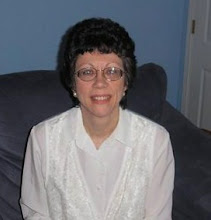Hypothyroidism is undoubtedly the most common disorder of thyroid function. It affects both sexes and all ages; it may be overt or subclinical; the spectrum of severity is broad. At one extreme are patients who have a few symptoms and signs. At the other extreme are patients in coma. Hypothyroidism can be subclinical for many years, particularly in patients with autoimmune Hashimoto's thyroiditis.
Although we are beginning to understand immune mechanisms, we do not yet fully understand autoimmune thyroid disease. Hashimoto's disease is primarily cell-mediated immune destruction of the thyroid gland. In the less common Graves' disease (also called thyrotoxicosis), a circulating antibody drives the thyroid to hyperfunction, out of the control of pituitary TSH feedback. Graves' disease and Hashimoto's disease frequently coexist in families. Although the tendency to develop these autommune disorders is almost certainly inherited, we do not yet know how the malady is inherited.
What frequently confuses the average clinician is that patients often experience other autoimmune endocrinopathies simultaneously. Addison's disease (adrenal insufficiency), type 1 diabetes (insulin dependent), autoimmune gonadal failure, hypoparathyroidism and pituitary failure are not rare partners. Several years ago, Phyllis Saifer, M.D., and I coined the term APICH Syndrome, which introduced associative non-endocrine maladies with the previously outlined endocrine disorders. While clinically important, these relationships tantalized more than informed us about the basic mechanisms of autoimmunity.
Thyroid disorders are coupled maladies: localized inflammation with generalized flu-like symptoms and resultant hormone excesses or deficiencies. It is no surprise that the patient, as well as the physician, is confused.
Admid this confusion, treatment with thyroid hormone -- to the point of TSH suppression -- is often diagnostic as well as therapeutic. These remarks would be considered heresy by academicians. Physicians and patients should, however, remember that academicians are often passionate, idealistic, eccentric, quarrelsome and self-serving. They often do research, publish, teach, but rarely see or care for thyroid sufferers.
Regarding actual patient care, a trial of thyroid hormone therapy was often used to good advantage in the past. Today, with sensitive laboratory studies, such as TSH assays, our presumed ability to diagnose thyroid disease has encouraged the physician to treat the laboratory data instead of the patient. Consequently, empiric treatment with thyroid hormones has fallen out of favor.
Nevertheless, sensible, cost-effective treatments of widespread thyroid disorders remain an important concern of the physician, not least because the patient often presents with vague complaints that easily can be misdiagnosed. Patients who present with fatigue, depression and subtle cognitive defects are frequently dismissed, discouraged and mistreated. I've spent many years treating these patients with thyroxine (T-4) and more recently with concomitant triiodothyronine (T-3) with much success.

No comments:
Post a Comment